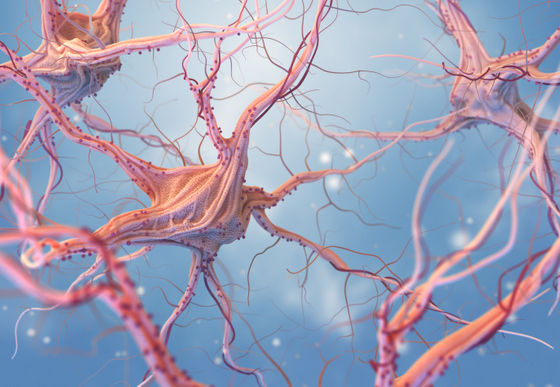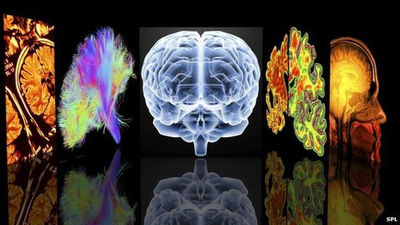How does an Alzheimer's disease vaccine work?

Despite decades of research, we have yet to discover the cause of Alzheimer's disease or develop a radical cure. The scientific news site Live Science summarizes the `` Alzheimer's disease vaccine '', which is a completely new approach to such Alzheimer's disease.
Could vaccines prevent and treat Alzheimer's disease? | Live Science
Much of the research into Alzheimer's disease so far has focused on amyloid-β , a protein that accumulates in the brains of patients. However, drugs that remove amyloid plaques formed by protein deposits have not been very effective. This has led some researchers to propose the hypothesis that ``amyloid β deposition may be a consequence of Alzheimer's disease rather than a cause.''
According to this theory, Alzheimer's disease is caused by a malfunction of the immune response to bacterial and viral infections. This leads to inflammation and excess amyloid β, which slows down the activity of cells that normally remove amyloid β before it causes harm.

Although amyloid β is often viewed as a bad guy, it is said to be a substance with antibacterial properties that repels harmful pathogens because it is produced when inflammatory signals reach the brain. But when this protein confuses healthy brain cells with pathogens, it forms a clump called plaque that damages the brain. To counter this, there are cells called
Studies have reported that people infected with certain viruses, such as herpes virus and new coronavirus, have a higher risk of developing Alzheimer's disease later, and this suggests that ``the effects of immune function may be the trigger for Alzheimer's disease. It supports the idea that
Some Alzheimer's researchers have begun testing vaccines that recalibrate the immune system to fight infections. This vaccine is supposed to be effective by stopping the chain reaction of immune function that produces harmful proteins. This vaccine may also help prevent Alzheimer's disease and treat it after it develops.

One vaccine candidate is
One reason why the BCG vaccine is so effective in preventing Alzheimer's disease is that it recalibrates the immune system. The BCG vaccine is known to cause extensive metabolic changes in various types of immune cells, for example, immune cells called monocytes switch their energy source from glutamine to glucose due to the vaccine. This enables a rapid immune response and may also improve pathogen discrimination.
The BCG vaccine has shown promising results in preliminary trials, and a research team led by Charles Greenblatt, professor of microbiology and molecular genetics at the Hebrew University of Jerusalem, vaccinated 49 healthy volunteers with the BCG vaccine. As a result, the concentration of amyloid β in the blood of the subject changed after 9 months. People who received BCG had less harmful amyloid beta in their brains, confirming that the BCG vaccine is effective in preventing Alzheimer's disease. The research team is currently embarking on a small trial of 15 adults diagnosed with mild cognitive impairment and mild to moderate Alzheimer's disease.

There are other promising treatments as well. The nasal Alzheimer's disease vaccine Protollin, led by Tanuja Chitnis, professor of neurology at the Brigham and Women's Hospital, Harvard Medical School, was launched in 2004 as
Existing Alzheimer's drugs, such as aducanumab and lecanemab , aim to make antibodies that attach to and help clear amyloid plaques in the brain. However, the efficacy of this treatment is controversial, and side effects such as cerebral hemorrhage and brain enlargement and atrophy have been pointed out.
On the other hand, Protollin does not target amyloid β, but activates a wide range of immune cells to remove proteins. It is also theoretically possible that Protollin could increase the response to bacteria and viruses that are thought to increase the risk of Alzheimer's disease.
In addition, vaccines that directly target amyloid-β have also emerged. One of them is 'UB-311' developed by American biotechnology company Vaxxinity. UB-311, which is being prepared for late-stage clinical trials, had no side effects such as cerebral hemorrhage or hypertrophy in early-stage clinical trials in which 43 people participated.

James Nowick, an Alzheimer's disease vaccine expert at the University of California, Irvine, told Live Science: ``In Alzheimer's disease, the processes that release amyloid-beta are enhanced, while microglia are dysfunctional. An Alzheimer's disease vaccine must harmonize all the immune systems of the brain, just like the conductor of an orchestra, ”he talks about the difficulty of developing an Alzheimer's disease vaccine.
For example, the BCG vaccine and Protollin have been approved as vaccines and vaccine additives for other diseases, and their safety has been confirmed. However, its effectiveness as an Alzheimer's disease vaccine has yet to be proven. However, even if it is less effective than existing therapeutic agents, it has the potential to make Alzheimer's disease treatment more accessible. For example, aducanumab and lecanemab need to be infused many times, which costs the patient $ 26,500 (about 3.83 million yen) a year, but a vaccine costs about $ 1000 (about 140,000 yen) a year. is enough.
``For early Alzheimer's disease, a few doses may be enough to stop the progression of symptoms,'' said Titonis, who is involved in the development of Protollin. , expressed the view that it may be possible to lower long-term dosages and reduce the need for treatment.
Related Posts:
in Science, Posted by log1l_ks







